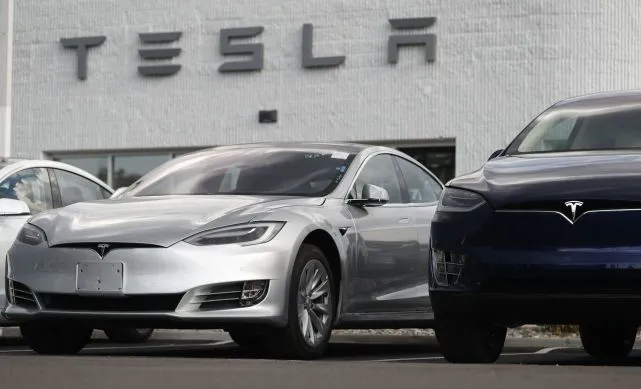Tesla has revolutionized the electric vehicle (EV) industry with innovative technology, including its use of cutting-edge battery chemistries. Among these, Lithium Iron Phosphate (LiFePO4) batteries have gained significant attention. Known for their safety, longevity, and cost-effectiveness, LiFePO4 batteries are increasingly used in Tesla’s lineup—but not in all models. Let’s explore which Tesla vehicles use these batteries and why Tesla chose this technology.

LiFePO4 batteries are a type of lithium-ion battery that uses lithium iron phosphate as the cathode material. Compared to the more common nickel-cobalt-aluminum (NCA) and nickel-cobalt-manganese (NCM) batteries,
LiFePO4 battery have some unique advantages:
· Enhanced Safety: Lower risk of overheating and thermal runaway.
· Durability: Longer lifecycle with better resistance to charge-discharge cycles.
· Cost-Efficiency: Less reliance on expensive materials like cobalt and nickel.
· Environmental Friendliness: Fewer resource-intensive materials and more recyclable components.
However, they also have a lower energy density, which means slightly reduced range compared to other lithium-ion chemistries.
Tesla primarily uses LiFePO4 battery in certain Standard Range (SR) and base model versions of its cars. As of 2024, these include:
1. Model 3 Standard Range (SR) and Rear-Wheel Drive (RWD)
The Tesla Model 3, Tesla's best-selling sedan, uses LiFePO4 batteries in its Standard Range and Rear-Wheel Drive configurations. This change was introduced in late 2021 for cars manufactured in Tesla’s Shanghai Gigafactory and has since expanded globally.
2. Model Y Standard Range (SR)
LiFePO4 batteries are also found in the Model Y Standard Range version, particularly in vehicles produced at Tesla’s Shanghai and Berlin Gigafactories. Like the Model 3 SR, these batteries prioritize cost savings and are often marketed for affordability and daily commuting.
3. Model S and Model X? Not Yet.
As of now, Tesla’s premium models, the Model S and Model X, continue to use nickel-based chemistries (NCA or NCM) for their higher energy density, which is essential for maximizing range and performance.
The use of LiFePO4 battery aligns with Tesla’s strategy to lower production costs, enhance supply chain flexibility, and meet the diverse needs of its customer base. Key reasons for this choice include:
· Affordability for Entry-Level Models: LiFePO4 batteries reduce costs, enabling Tesla to offer more competitively priced vehicles.
· Market-Specific Demand: In China, where LiFePO4 batteries are common and manufacturing expertise is high, these batteries are particularly popular.
· Improved Battery Lifecycle: For consumers seeking a long-lasting battery with more charge cycles, LiFePO4 offers an appealing option.
Pros of Tesla Vehicles with LiFePO4 Battery
· Longer Lifespan: Ideal for drivers who plan to keep their cars for years.
· Better Charging Habits: LiFePO4 batteries are more tolerant of frequent charging to 100%, making them suitable for daily full-range use.
· Lower Cost: These models are typically more affordable upfront.
Cons to Consider
· Slightly Reduced Range: Lower energy density means these models generally have shorter ranges compared to their nickel-based counterparts.
· Cold Weather Performance: LiFePO4 batteries are less efficient in extremely cold climates, which can slightly impact winter driving.
Tesla’s adoption of Lithium Iron Phosphate battery for specific Model 3 and Model Y configurations is a strategic move that balances cost, performance, and sustainability. These batteries make EVs more accessible without compromising Tesla’s commitment to quality and innovation. If you’re considering a Tesla for city driving, commuting, or affordability, models equipped with LiFePO4 batteries might be your ideal choice.
As Tesla continues to innovate, it’s likely that LiFePO4 batteries will play a growing role in the EV market, reflecting the broader industry’s shift toward sustainable and cost-effective solutions. Stay tuned for more developments as Tesla refines its battery technology!
Next:Comprehensive Guide to 12V Batteries
Previous:CATL will set up a battery recycling business in Europe.
Contact Person: Miss. Elsa Liu
| WhatsApp : | +8617763274209 |
|---|---|
| Skype : | +8617763274209 |
| WeChat : | 17763274209 |
| Email : | Elsa@lifepo4-battery.com |